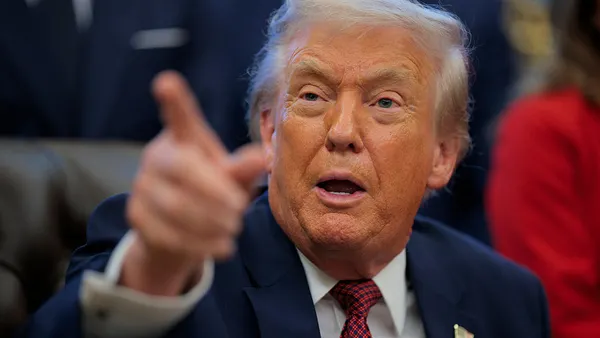Dive Brief:
- A new application from Accenture will allow consumers to know more about the origin of products they purchase and help producers track where their goods end up. The app, which the company calls the circular supply chain capability, creates a digital identity for the producer and tracks the movement of goods using blockchain, digital identity and payment solutions.
- The final version, not yet available on any products, will allow consumers to use a QR code on a good's packaging to get information on where it was originally sourced and, if they want, leave a monetary tip for the original producer. Accenture is currently working with a coffee cooperative in Latin America and livestock producers in Africa on early demonstrations. It has partnered with Mastercard, Amazon Web Services, Everledger and Mercy Corps on this project.
- Gaining end-to-end transparency will require buy-in from multiple partners in the supply chain. But this is meant to be an easy first step for producers who want to introduce more traceability into their operations, according to Christine Leong, the managing director of the blockchain leadership team at Accenture. "The idea is that anyone across a supply chain can start somewhere," Leong said in an interview with Supply Chain Dive.
Dive Insight:
Grocery store shoppers are met with a many labels, telling them the eggs are cage-free, the produce is organic, the coffee is single sourced. But there isn't any easy way for a consumer to verify this information, Leong said.
"It’s almost impossible, for me, as a consumer today, to know where it actually comes from," she said.
The capability uses blockchain in two different ways: for identifying the producer and for tracking the goods.
The tracking of the goods starts with the producer. Tracking would differ from one supply chain to the next. One might use barcodes while another may use a different method, but each step along the way would be logged on the blockchain. This allows consumers to know where their final goods came from.
The producers are given an identifier that allows them to be verified, also stored on the blockchain. This gives the system another layer of accountability, Leong said.
Consumers will then be able to provide their tip to the producer, like they're tipping a Lyft driver or their DoorDash delivery person. Mastercard will handle the transaction of tips and make sure the producers are able to turn the tips into real currency.
The solution is currently available for producers who want to start using it to track their goods. But the consumer-facing application won't be released until there are producers who have implemented it and have the end-to-end traceability to make it happen.














